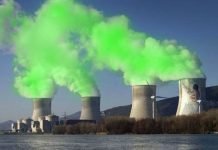Flooding in Germany, Belgium, the Netherlands and Luxembourg has caused devastation
At least 58 people have died in parts of western Germany amid heavy rains and flooding, local police said on Thursday. Most of the deaths have been reported in the states of North Rhine-Westphalia and Rhineland-Palatinate.
Up to 70 people are missing in Germany after flash floods swept across western and southern parts of the country, causing buildings to collapse, police said Thursday. Germany is worst hit with 58 people killed, while six people died in Belgium.
“In some areas we have not seen this much rainfall in 100 years,” Andreas Friedrich, a German weather service spokesman, stated. He added that “in some areas, we’ve seen more than double the amount of rainfall which has caused flooding and unfortunately some building structures to collapse.”
The flooding has heavily impacted transport in the region, which lies near the borders to Belgium, Luxembourg, France and the Netherlands. Weather forecasters say more rain is expected in the coming days.
Chancellor Angela Merkel pledged swift help backed by “all the power of the state” for people affected by devastating flooding in western Germany, where at least 42 people have died and dozens are missing. Floods also swamped parts of Luxembourg, the Netherlands and Belgium.
The Deutscher Wetterdienst (DWD), Germany’s federal meteorological service, passed on the warning to local authorities, said spokesman Uwe Kirsche. “As a federal authority, the DWD is not responsible for initiating evacuations or other measures on-site … that is a task for the local authorities,” he added.
Some authorities, including the Belgian city of Liège and several towns in Luxembourg, did order people to leave their homes. Flooding also hit parts of the Netherlands, where the government labelled the situation an official disaster.
Armin Laschet, Germany’s center-right candidate to succeed Chancellor Angela Merkel in September elections, cancelled a trip to Bavaria and returned to his home state of North Rhine-Westphalia, where he spoke to reporters in the flood-hit city of Hagen on Thursday.
He said authorities had been warned and had erected barriers “while the sun was still shining and nobody saw this coming.”

The EFAS issued a warning in the “extreme category,” said Cloke, “which means there’s danger to life. It doesn’t say you should evacuate, that’s up to the national authorities. But typically, if you have a danger to life warning, and you know where that’s going to happen, you make sure that you’re in place for evacuation. That’s how disaster risk management works.”
The public, she said, had clearly not got the message. “The sight of people driving or wading through deep floodwater fills me with horror, as this is about the most dangerous thing you can do in a flood.”
Preparedness for extreme weather events will become a necessary part of living with climate change in Europe. Because hot air carries more water, floods and extreme rainstorms are on the increase as the climate warms, according to a review of the latest science, including a leaked draft report from the U.N. Intergovernmental Panel on Climate Change (IPCC).
The IPCC says that if warming breaches 1.5 degrees Celsius — it has already passed 1 degree — then around five million Europeans will have to live with annual flooding. In the past, those people in the same areas could have expected to be flooded once in a century.
Friederike Otto, associate director of Oxford University’s Environmental Change Institute, said climate change was “one driver, [but] not the only one.”
Support Independent Journalism Today
Our unwavering dedication is to provide you with unbiased news, diverse perspectives, and insightful opinions. We're on a mission to ensure that those in positions of power are held accountable for their actions, but we can't do it alone. Labour Heartlands is primarily funded by me, Paul Knaggs, and by the generous contributions of readers like you. Your donations keep us going and help us uphold the principles of independent journalism. Join us in our quest for truth, transparency, and accountability – donate today and be a part of our mission!
Like everyone else, we're facing challenges, and we need your help to stay online and continue providing crucial journalism. Every contribution, no matter how small, goes a long way in helping us thrive. By becoming one of our donors, you become a vital part of our mission to uncover the truth and uphold the values of democracy.
While we maintain our independence from political affiliations, we stand united against corruption, injustice, and the erosion of free speech, truth, and democracy. We believe in the power of accurate information in a democracy, and we consider facts non-negotiable.
Your support, no matter the amount, can make a significant impact. Together, we can make a difference and continue our journey toward a more informed and just society.
Thank you for supporting Labour Heartlands











